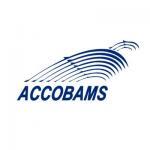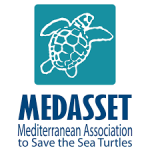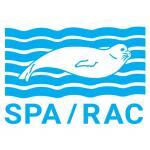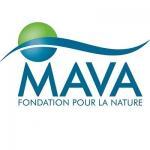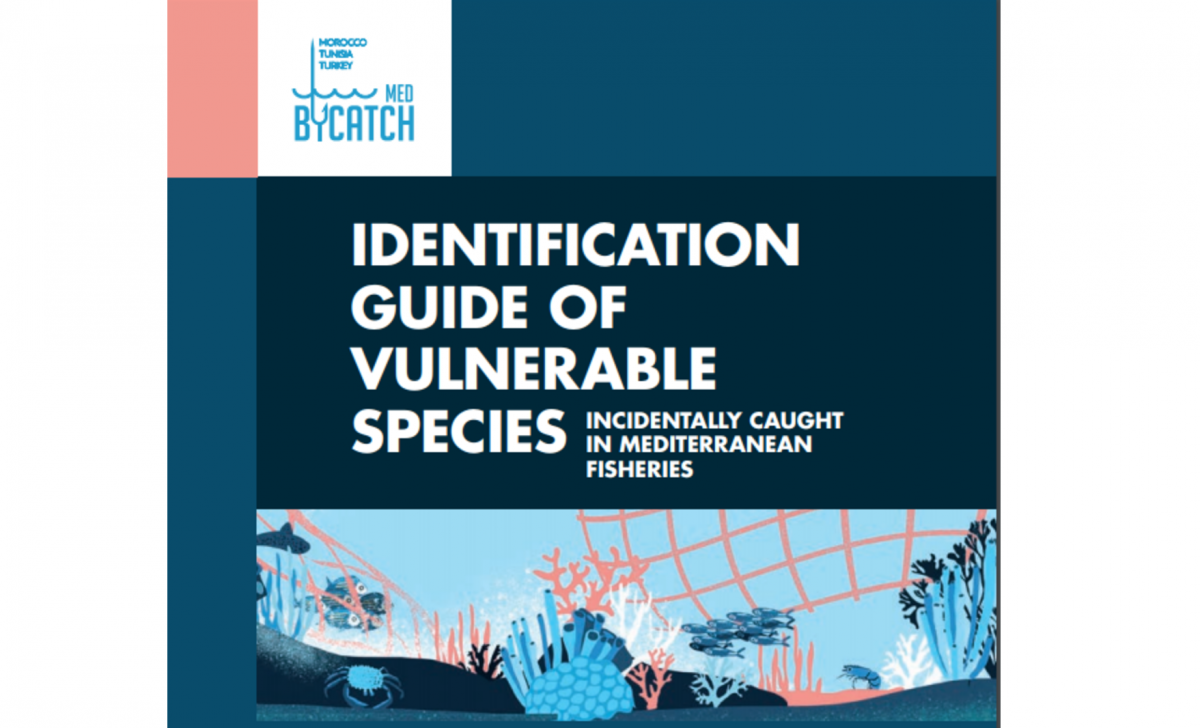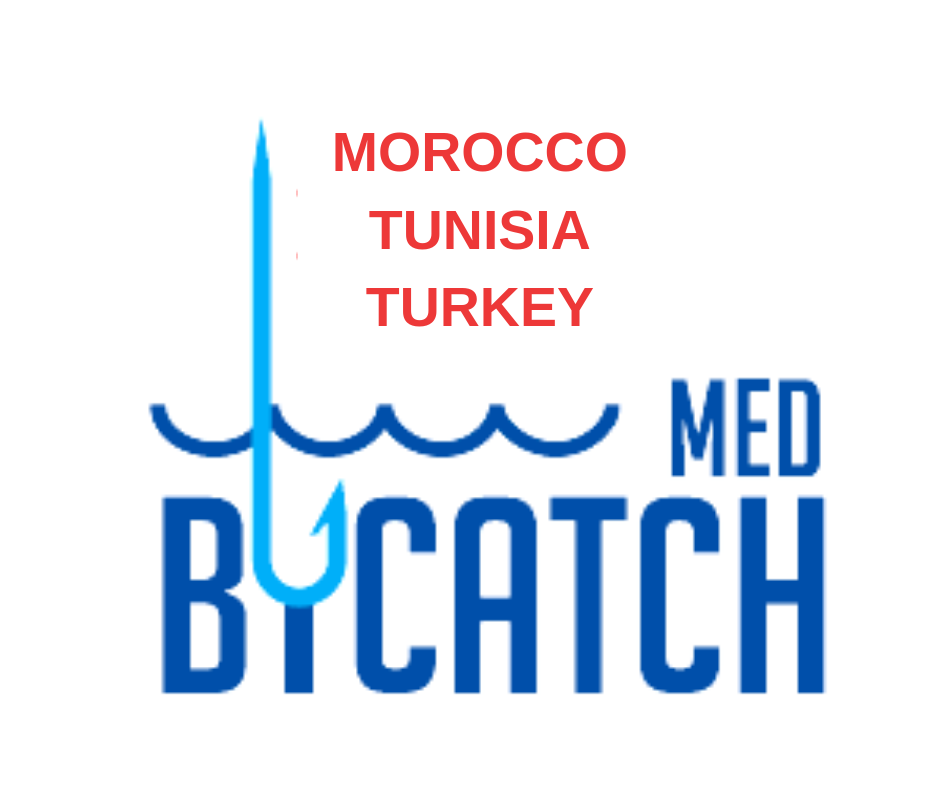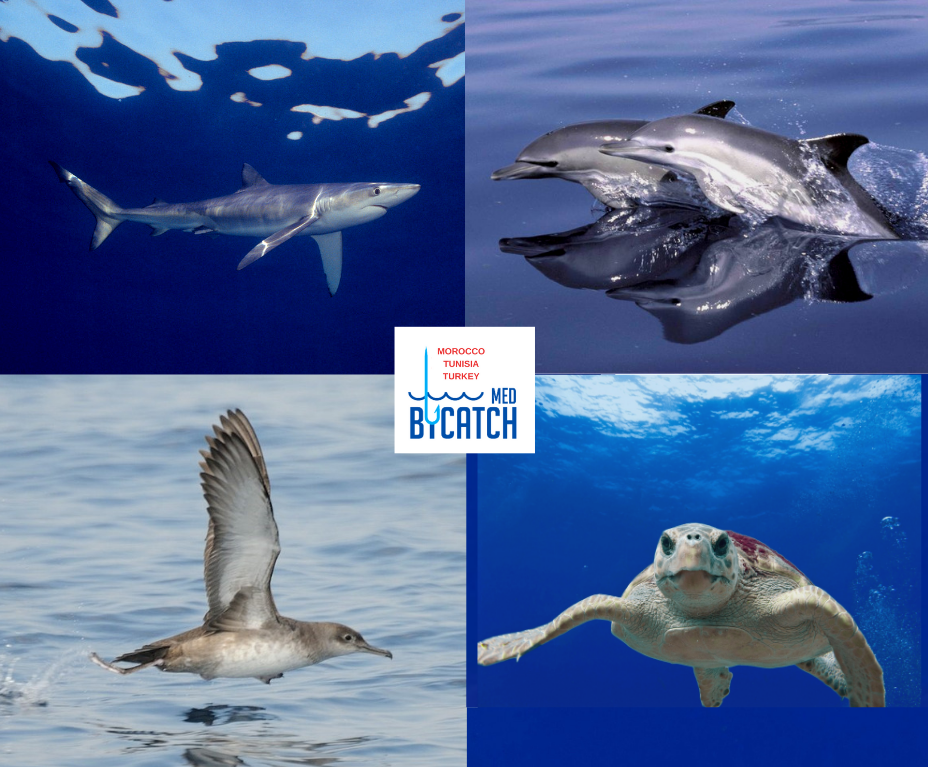The Med Bycatch Project - "A collaborative approach for understanding multi-taxa ‘bycatch’ of vulnerable species in Mediterranean fisheries and testing mitigation"
The incidental capture of vulnerable species in fishing gear (also known as ‘bycatch') is a key threat in the Mediterranean Sea for several taxonomic groups, including sea turtles, seabirds, marine mammals, cartilaginous fishes as well as corals and sponges. The term ‘bycatch’ is used to refer to the part of the catch unintentionally captured during a fishing operation (in addition to the target species), and consists species with or without commercial value.
Data collection on the incidental catch of vulnerable species in the Mediterranean Sea has traditionally been carried out using varying protocols at different geographic scales. The absence of systematic reporting of vulnerable species captured has made data comparison at a regional level difficult, despite national and international obligations. Observations and reports tend to lack standardization and continuity.
Furthermore, there is a need for developing efficient mitigation techniques for multi-taxa bycatch of vulnerable species in the Mediterranean, as well as methods that can be implemented for different fishing operations and gear used in the region.
Main objectives
The project aims to support Mediterranean countries, specifically Morocco, Tunisia and Turkey, to develop a common standardized methodology to collect data and test mitigation solutions that can be replicated at the regional level.
The project focuses on three demersal fishing gears: trawls, gillnets and longlines. In addition, data will be collected on purse seine bycatch in Morocco.
The main objectives of the project include:
-
Creating knowledge and baseline information on vulnerable marine species affected by multi-taxa bycatch
-
Raising awareness of fishers and other target groups
-
Capacity building of relevant actors for implementing sustainable fishing practices
-
Implementing demonstration projects on sustainable fishing practices
-
Contributing to the development of a Mediterranean Strategy/Action Plan 2020-2030
Project actions
To date, workshops preparing the bycatch monitoring programme and the implementation of the observation program in collaboration between the different national and international partners as well as local stakeholders have been organized. 61 onboard observers in Morocco, Tunisia and Turkey have been trained to gather data on board fishing vessels, and data collection continues. Over 3200 port-based questionnaires have also been carried out since the initiation of the project.
Regional reviews of incidental catch, communications campaigns, engagement with the fishing industry as well as capacity building of local NGOs are among the project actions currently in process.
In the final stages of the project, the data collected within the observer program will be analyzed and reported. Workshops with stakeholders in Morocco, Tunisia and Turkey will be held in 2020 to collect input for the design of the mitigation trials and measures to be tested during a later phase of the project.
The data collected within the project will help to address the current deficiencies in the collection of data from Mediterranean medium and small scale fisheries and help to develop a Mediterranean Strategy/Action Plan 2020-2030.
Expected results
-
Standardized data collection on vulnerable species affected by unsustainable fishing practices and incidental catch (multi-taxa ‘bycatch’)
-
Tested mitigation measures that effectively reduce multi-taxa bycatch through regional collaboration
-
Raised awareness of fishers and other target groups on multi-taxa bycatch through communication and advocacy activities
-
Capacity building of relevant actors (NGOs, fisher organizations, administrations)
-
Implementation of demonstration projects on sustainable fishing practices
-
Development of Mediterranean Strategy/Action Plan 2020-2030
The Identification Guide Of Vulnerable Species Incidentally Caught In Mediterranean Fisheries
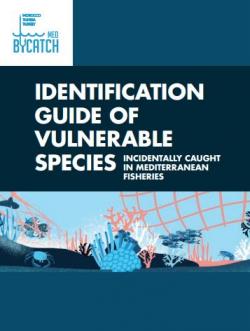 Photo: IUCN-Med
Photo: IUCN-Med
The Med Bycatch Project has issued a practical guide to help fishing communities and on board observers identify, monitor and improve their knowledge on vulnerable species potentially caught as bycatch in the Mediterranean. Building on a partnership with ACCOBAMS, SPA-RAC , BirdLife Europe and Central Asia, MEDASSET and the financial support from the MAVA Foundation, IUCN-Med has coordinated the final compilation and editing of this guide with the contribution of different experts of the Mediterranean.
In this comprehensive guide, the description of each species is supported by photographs, illustrations and narrative descriptions that highlight important anatomical structures of each species, as well as the common names in several languages (English, Spanish, French and Arabic).
READ THE GUIDE OF THE MED BYCATCH PROJECT HERE:
English Version: https://portals.iucn.org/library/node/49019
French Version: https://portals.iucn.org/library/node/49020
Turkish Version: https://portals.iucn.org/library/node/49021
Croatian version: https://portals.iucn.org/library/node/49264
POCKET GUIDES
Turkey: Turkish | English
Morocco: French | English
Tunisia: French | English
Further details
Moreover, the guide provides information on the conservation status according to the IUCN Red List: and the protected status under different international agreements, conventions, fisheries recommendations and resolutions, including:
- Convention on the Conservation of Migratory Species of Wild Animals (CMS), such as the inclusion as a “protected species” in Appendix I (Endangered migratory species) and/or Appendix II (Migratory species conserved through Agreements)
- Convention on International Trade in Endangered Species of Wild Fauna and Flora (CITES), inclusion in Appendix I (Species threatened with extinction)
- Agreement on the Conservation of Cetaceans of the Black Sea, Mediterranean Sea and contiguous Atlantic area (ACCOBAMS)
- SPA/ BD Protocol (Specially Protected Areas and Biological Diversity in the Mediterranean) of the Barcelona Convention, inclusion Annex II (List of Endangered or Threatened Species) or III (List of Species Whose Exploitation is Regulated).
- Recommendations from General Fisheries Commission for the Mediterranean) on fisheries management measures.
- Guidelines from the International Commission for the Conservation of Atlantic Tunas on bycatch in tuna and tuna-like fisheries.
Information is also given for those species that should be released alive as they cannot be retained on board, transhipped, landed, transferred, stored, sold , displayed or offered for sale.
This content can be further completed with the document ‘Monitoring the incidental catch of vulnerable species in Mediterranean and Black Sea fisheries - methodology for data collection’ prepared by FAO/GFCM1 with the inputs provided by partner organizations.
http://www.fao.org/publications/card/en/c/CA4991EN/
IUCN-Med’s role
IUCN-Med’s responsibilities in this project include: (i) the edition of the Identification Guide of Vulnerable Species Incidentally Caught in Mediterranean Fisheries, (ii) providing experts on sharks, rays, sponges and corals, (iii) policy-making and (iv) producing communications products.
IUCN-Med also plays an important role as a collaborating partner who supports the implementation of activities within the scope of the project (e.g. onboard observation program and training workshops).
Partnership
The project is financed by MAVA, and builds on the cooperation between Birdlife International (as coordinator), ACCOBAMS, GFCM, IUCN-Med, MEDASSET and SPA/RAC.
Duration: 33 months (October 2017 – June 2020)
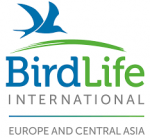 Photo: birdlife_international_europe_and_centrala_asia
Photo: birdlife_international_europe_and_centrala_asia
